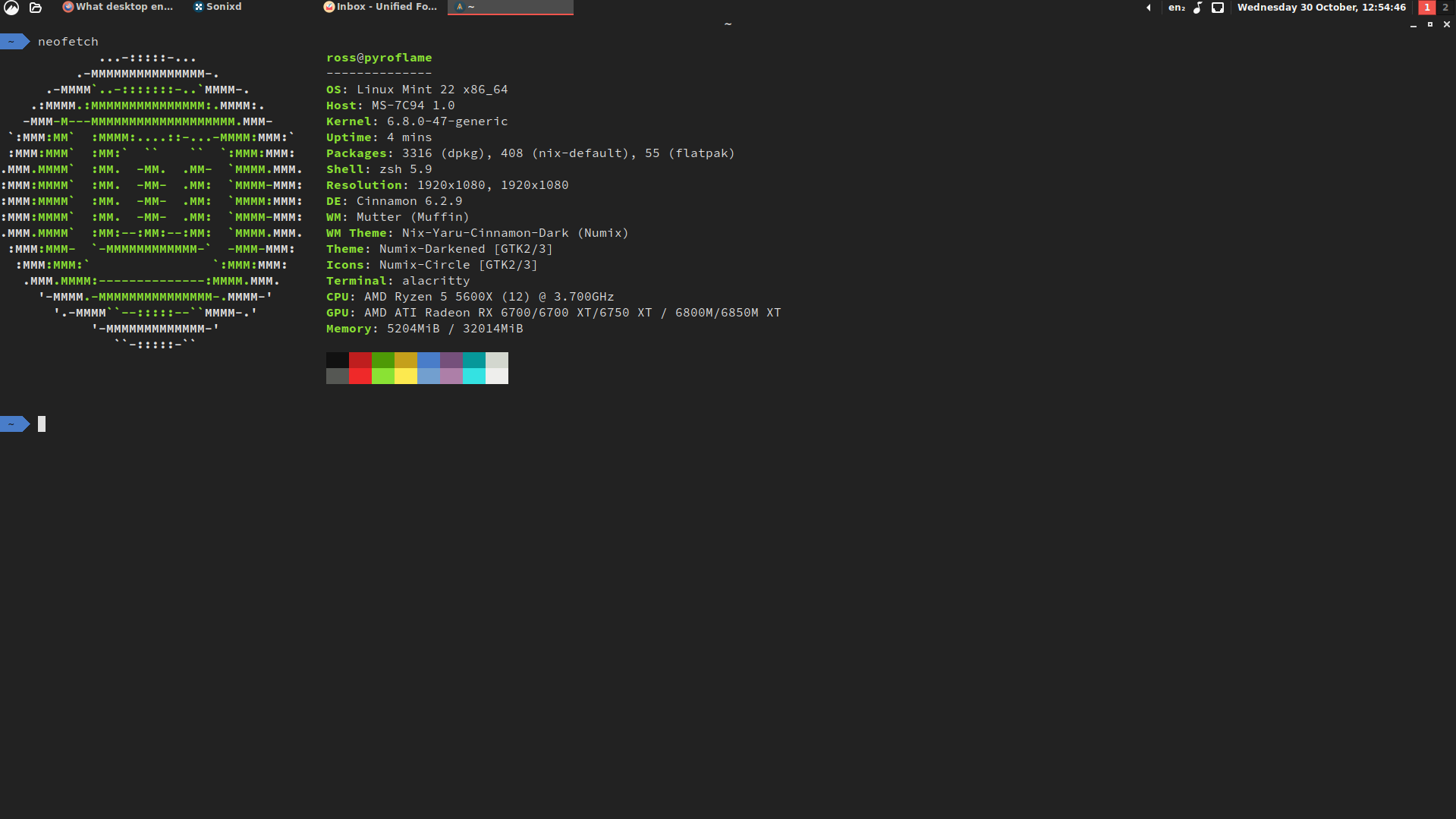There is, but I use a hipster keyboard layout and they don't support alternate keyboard layouts yet.
savvywolf
Cinnamon. Desktop environment peaked in the Windows XP/Gnome 2 days and everything else is just change for the shake of change. :C
My only annoyance is lack of Wayland support. Tried out cosmic, but it doesn't have the Windows XP/Gnome 2 style window list.
Screenshot for anyone interested:

If it turns out to actually be a problem, people can just fork Linux itself.
Oh, neat. Surprised that isn't added to the default paths though.
It also still does the annoying name.like.this for binary names rather than just using normal names though.
vim
Opinion disregarded.
As an aside: I really wish flatpaks would put symlinks or something in ~/.local/bin so you could just run them without the flatpak run boilerplate.
Storage devices can fail at any time for any reason. Always have a backup.
Fwiw, I think BTRFS is better than ext4 and friends at actually detecting whether a block is corrupted or not.
Huh. Lot of people Russian' to conclusions in this thread.
Sorry.
As far as I know, none of the major DEs have Windows-style telemetry turned on by default. So ignoring security issues and apps themselves, DEs should roughly be the same on the privacy front.
You can have multiple A records point to the same IP address, yes. Whatever website you're managing your DNS with should allow you to create multiple subdomains as A/AAAA records. You can also (if you wish) use a wildcard to ensure that all subdomains go to your VPS's server.
If you want to run multiple HTTP/HTTPS services on the same IP address (as it looks like you want to do), you'll need to use a reverse proxy like Nginx. It can pattern match on domain names and ensure that traffic for one domain goes to an appropriate port/socket (mastodon.example.com being sent to the mastodon service). It's not possible for DNS to specify port redirection.
Also, you've not mentioned it here, but look into https://letsencrypt.org/ for HTTPS certificates.
Firstly, for my dotfiles, I use home-manager. I keep the config on my git server and in theory I can pull it down and set up a system the way I like it.
In terms of backups, I use Pika to backup my home directory to my hard disk every day, so I can, in theory, pull back files I delete.
I also push a core selection of my files to my server using Pika, just in case my house burns down. Likewise, I pull backups from my server to my desktop (again with Pika) in case Linode starts messing me about.
I also have a 2TiB ssd I keep in a strongbox and some cloud storage which I push bigger things to sporadically.
I also take occasional data exports from online services I use. Because hey, Google or Discord can ban you at any time for no reason. :P
Chromebooks have the advantage of being mostly a laptop with a keyboard, mouse-analog and largish screen... Phones don't really have that, so it seems an odd choice to me. Especially for a platform which is hostile to giving users permissions to install software on their own devices.
I tried Cosmic and quite liked it. Just waiting for them to add a gnome 2 style window list widget with the window names.